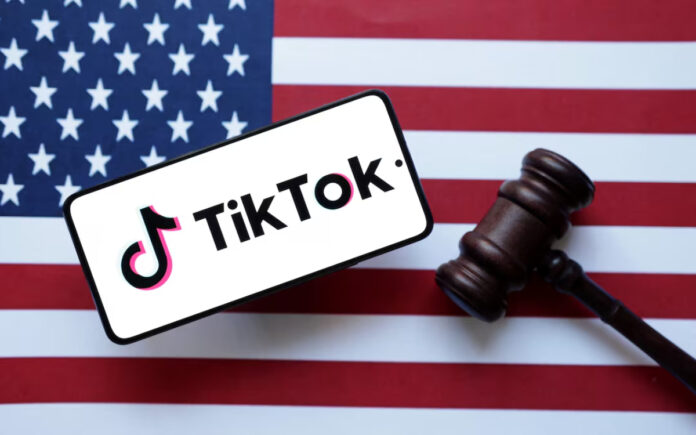Washington: The U.S. Supreme Court upheld a law on Friday banning TikTok in the United States unless its Chinese parent company, ByteDance, sells the platform by Sunday. In a unanimous 9-0 decision, the court rejected claims that the ban violated the First Amendment, marking a significant escalation in efforts to address national security concerns tied to the app.
The law, passed with overwhelming bipartisan support in Congress last year and signed by President Joe Biden, has faced intense scrutiny from TikTok, ByteDance, and some of the app’s users. However, the court sided with the government, asserting that the restrictions do not infringe on free speech rights.
Court’s Rationale
“There is no doubt that, for more than 170 million Americans, TikTok offers a distinctive and expansive outlet for expression, means of engagement, and source of community. But Congress has determined that divestiture is necessary to address its well-supported national security concerns regarding TikTok’s data collection practices and relationship with a foreign adversary,” the court stated in its opinion.
The justices emphasized that TikTok’s susceptibility to foreign influence, coupled with its vast data collection, justified the measures taken to mitigate risks.
White House and Political Reactions
The White House indicated President Biden would not intervene to delay the Sunday deadline, leaving implementation of the law to the incoming administration. Former President Donald Trump, who is set to return to office on Monday, commented on social media: “The Supreme Court decision was expected, and everyone must respect it. My decision on TikTok will be made in the not too distant future, but I must have time to review the situation. Stay tuned!”
Trump also revealed he discussed TikTok-related issues with Chinese President Xi Jinping in a phone call on Friday.
Implications for TikTok
The court’s ruling underscores bipartisan agreement on the perceived national security threats posed by TikTok. If ByteDance fails to meet the divestiture deadline, TikTok has announced plans to shut down its U.S. operations, a move that could impact its 7,000 American employees and millions of users.
Uncertainty looms over the status of TikTok’s partnerships with companies such as Apple, Google, and Oracle, as service providers could face legal consequences under the law.
Broader Context and Next Steps
The Supreme Court acted swiftly, holding arguments just days before issuing its decision. The law reflects growing concerns over Chinese influence amid heightened trade tensions and geopolitical rivalry between the U.S. and China.
Attorney General Merrick Garland praised the ruling, stating, “The court’s decision enables the Justice Department to prevent the Chinese government from weaponizing TikTok to undermine America’s national security.” Deputy Attorney General Lisa Monaco added that the next administration would oversee the law’s implementation.
Also Read | Pakistan Enters Space Era with First Home-Made Observation Satellite
The law includes provisions for a 90-day extension if significant progress toward divestiture is made. Incoming National Security Adviser Mike Waltz signaled that the Trump administration would explore options to keep TikTok operational in the U.S. under strict safeguards.
Senate Democratic Leader Chuck Schumer called for additional time to find an American buyer, highlighting the app’s popularity and economic significance.
Legal and Constitutional Challenges
TikTok has consistently argued that the law violates its First Amendment rights, as well as those of its users. Lawyer Noel Francisco, representing TikTok and ByteDance, told the Supreme Court, “The app is one of America’s most popular speech platforms.” He contended that the law targets speech rather than security, potentially stifling free expression.
Despite these concerns, the court’s decision underscores the prioritization of national security in the face of evolving digital threats.



